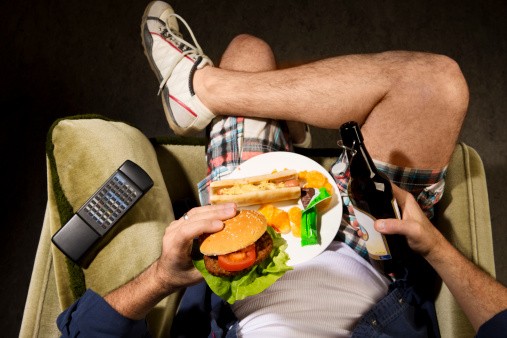Part of the obesity epidemic is due to the fact that fast food and junk food are priced cheaper than organic and healthier options. A few medical experts have ruled out that the gap between the rich and poor doesn't necessarily mean that the well-off are eating healthier in a comparative study between England and America.
According to a newly published study in the JAMA Internal Medicine journal, middle-aged people in the United States are a lot less healthy than their counterparts in England. No matter what income class Americans belong to, healthy eating seems to be evaded by those aged 55 to 65.

Data by the Centers for Disease Control and Prevention (CDC) show that 78% of American middle-aged adults have at least one chronic health condition with about 47% have two conditions. The top six chronic conditions are current asthma, cancer, arthritis, diabetes, cardiovascular disease, and chronic obstructive pulmonary disease.
Most of these acquired conditions are the result of poor lifestyle and diet. When their income is factored in, English people earning in the lowest 20% bracket are healthier than the poorest Americans.
A Public Health Emergency
Alongside University College London, they found a direct link that although health outcomes were better for the rich than the poor, the disparities between the gap in the United States was significant. In the study, 13,000 Americans were compared to 5,700 English middle-aged adults between 2008 and 2016.
"The shocking difference between rich and poor in both countries is something to be addressed," explained Langa. 'It's especially magnified in the United States, this rich-poor difference is even more of a public health emergency."
Dr. Kenne Langa from the University of Michigan Medical School said, "It's most shocking, and most evident, among low-income adults." Doctors say that this is part of why coronavirus had been devastating effects on low-income middle-aged adults in the United States.
Read Also: 30% of Young Adults Are Now Part of the COVID-19 High-Risk Group
Income, Health, and Coronavirus
When coronavirus entered both the United States and the UK, its impact on Americans had been and still are quite devastating. The hardest-hit communities in America had been residents with lower incomes.
"A number of the disparities that we found between low-income and high-income Americans - such as a higher risk of diabetes, hypertension, and higher levels of inflammation - are likely contributing to the much higher risk for COVID-related complications and death among the poor," said Langa. Moreover, low-income Americans are more likely to struggle with managing limited resources. The stress correlated with financial limitations is then dealt with smoking and unhealthy eating.
"Even younger cohorts than baby boomers, those in their forties, their health is really shockingly bad," said HwaJung Choi from the University of Michigan Medical School. In agreement. Langa said, "things look bad now and are likely to get even worse."
They believe that the government should intervene and work on reducing income inequality and improve education and employment opportunities. Langa explained, "these are larger issues than just who's getting healthcare."
"It should probably be beyond health policy," said Choi. Currently, in the UK, Prime Minister Boris Johnson has ordered for the entire nation to go under a diet to battle the obesity epidemic while using coronavirus as a driving factor.
Read Also: Prime Minister Boris Johnson Battles Obesity by Ordering a Nationwide Diet














